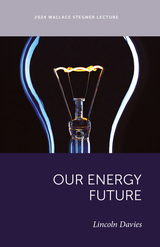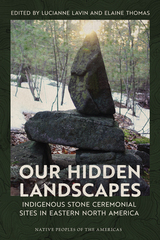249 start with I start with I
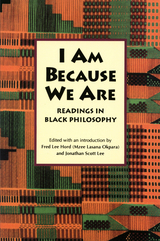
Over the past twenty years, however, new scholarly research has uncovered other contributions to the discipline now generally known as "Africana philosophy" that were not included in the original volume. In this revised and expanded edition, Hord and Lee build on the strengths of the earlier anthology while enriching the selection of readings to bring the text into the twenty-first century. In a new introduction, the editors reflect on the key arguments of the book's central thesis, refining them in light of more recent philosophical discourse. This edition includes important new readings by Kwame Gyekye, Oyeronke Oy ewumi, Paget Henry, Sylvia Wynter, Toni Morrison, Charles Mills, and Tommy Curry, as well as extensive suggestions for further reading.


Why in the world, Tarver asks, would anyone care about how well a total stranger can throw a ball, or hit one with a bat, or toss one through a hoop? Because such activities and the massive public events that surround them form some of the most meaningful ritual identity practices we have today. They are a primary way we—as individuals and a collective—decide both who we are who we are not. And as such, they are also one of the key ways that various social structures—such as race and gender hierarchies—are sustained, lending a dark side to the joys of being a sports fan. Drawing on everything from philosophy to sociology to sports history, she offers a profound exploration of the significance of sports in contemporary life, showing us just how high the stakes of the game are.



In the mid-1970s, Sylvère Lotringer created Semiotext(e), a philosophical group that became a magazine and then a publishing house. Since its creation, Semio-text(e) has been a place of stimulating dialogue between artists and philosophers, and for the past fifty years, much of American artistic and intellectual life has depended on it. The model of the journal and the publishing house revolves around the notion of the collective, and Lotringer has rarely shared his personal journey: his existence as a hidden child during World War II; the liberating and then traumatic experience of the collective in the kibbutz; his Parisian activism in the 1960s; his time of wandering, that took him, by way of Istanbul, to the United States; and then, of course, his American years, the way he mingled his nightlife with the formal experimentation he invented with Semiotext(e) and with his classes. Since the early 2010s, Donatien Grau has developed the habit of visiting Lotringer during his trips to Los Angeles; some of their dialogs were published or held in public. This book is an entry into Lotringer's life, his friendships, his choices, and his admiration for some of the leading thinkers of our times. The conversations between Lotringer and Grau show bursts of life, traces of a journey, through texts and existence itself, with an unusual intensity.

Since its publication in 1981, this book has established itself as the major new interpretation of the historical concept of Ibn Khaldûn, the great figure of Arab-Islamic letters and of historical thought overall--a figure generally thought to be on a par with Thucydides, Vico, Herder and others of similar stature.
The author has eschewed the ahistorical interpretations to which Ibn Khaldûn has normally been subjected, both by authors who have sought unduly to modernise his thought, and by those who sought to freeze it in stereotypical models of Islamic philosophy.
Ibn Khaldûn is not only a true historical source of his time; he is also taken as the unchallenged sociological and cultural interpreter of medieval North Africa and much of medieval and modern Arab-Islamic culture as well. The validity of his discourse is considered to be so universal as to confer upon his ideas the status of progenitor--or, at least, anticipator--of a great variety of modern ideas.

The Arabic philosophical fable Hayy Ibn Yaqzan is a classic of medieval Islamic philosophy. Ibn Tufayl (d. 1185), the Andalusian philosopher, tells of a child raised by a doe on an equatorial island who grows up to discover the truth about the world and his own place in it, unaided—but also unimpeded—by society, language, or tradition. Hayy’s discoveries about God, nature, and man challenge the values of the culture in which the tale was written as well as those of every contemporary society.
Goodman’s commentary places Hayy Ibn Yaqzan in its historical and philosophical context. The volume features a new preface and index, and an updated bibliography.
“One of the most remarkable books of the Middle Ages.”—Times Literary Supplement
“An enchanting and puzzling story. . . . The book transcends all historical and cultural environments to settle upon the questions of human life that perpetually intrigue men.”—Middle East Journal
“Goodman has done a service to the modern English reader by providing a readable translation of a philosophically significant allegory.”—Philosophy East and West
“Add[s] bright new pieces to an Islamic mosaic whose general shape is already known.”—American Historical Review

New 2016 paperback edition of the original 1989 printing (out-of-print).
Michael Allen's latest work on the profoundly influential Florentine thinker of the fifteenth century, Marsilio Ficino, will be welcomed by philosophers, literary scholars, and historians of the Renaissance, as well as by classicists. Ficino was responsible for inaugurating, shaping, and disseminating the wide-ranging philosophico-cultural movement known as Renaissance Platonism, and his views on the Sophist, which he saw as Plato's preeminent ontological dialogue, are of signal interest. This dialogue also served Ficino as a vehicle for exploring a number of other humanist, philosophical, and magical preoccupations, including the theme of man the artist and creator.
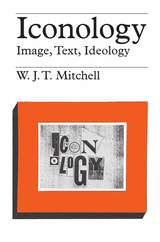
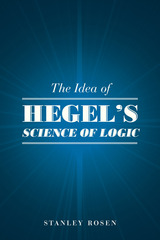
Rosen’s overarching question is how, if at all, rationalism can overcome the split between monism and dualism. Monism—which claims a singular essence for all things—ultimately leads to nihilism, while dualism, which claims multiple, irreducible essences, leads to what Rosen calls “the endless chatter of the history of philosophy.” The Science of Logic, he argues, is the fundamental text to offer a new conception of rationalism that might overcome this philosophical split. Leading readers through Hegel’s book from beginning to end, Rosen’s argument culminates in a masterful chapter on the Idea in Hegel. By fully appreciating the Science of Logic and situating it properly within Hegel’s oeuvre, Rosen in turn provides new tools for wrangling with the conceptual puzzles that have brought so many other philosophers to disaster.
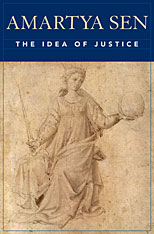
Social justice: an ideal, forever beyond our grasp; or one of many practical possibilities? More than a matter of intellectual discourse, the idea of justice plays a real role in how—and how well—people live. And in this book the distinguished scholar Amartya Sen offers a powerful critique of the theory of social justice that, in its grip on social and political thinking, has long left practical realities far behind.
The transcendental theory of justice, the subject of Sen’s analysis, flourished in the Enlightenment and has proponents among some of the most distinguished philosophers of our day; it is concerned with identifying perfectly just social arrangements, defining the nature of the perfectly just society. The approach Sen favors, on the other hand, focuses on the comparative judgments of what is “more” or “less” just, and on the comparative merits of the different societies that actually emerge from certain institutions and social interactions.
At the heart of Sen’s argument is a respect for reasoned differences in our understanding of what a “just society” really is. People of different persuasions—for example, utilitarians, economic egalitarians, labor right theorists, no-nonsense libertarians—might each reasonably see a clear and straightforward resolution to questions of justice; and yet, these clear and straightforward resolutions would be completely different. In light of this, Sen argues for a comparative perspective on justice that can guide us in the choice between alternatives that we inevitably face.

In 1721, the French philosopher Montesquieu posed the question, “Comment peut-on être persan?” in the title to his famous Persian Letters (Lettres persanes). After centuries of invasion, murder, destruction, authoritarian rule, decay of political theory, and increasing dissolution in Iran’s politics, this volume is an investigation into what the answer to that question might be today.
The Idea of Persia explores the notion of what it is to be Persian, but not as it has been constituted in the past, with reference to the political experience of antiquity, nor as an affirmation of the secular-rational project of modernity. Rather, the book examines the question of what it is to be Persian against the backdrop of centuries in which a common, plural subjectivity of Persian-ness has been continually delayed by those who, with or without ideologies, believed in politics only as a means of ruling or of being ruled without laws and in the absence of citizenship.
The historical battle for social and political freedoms is still underway in Iran, and as the nation wrestles with the possibility of an extended period of political, social, and cultural decline, it is a timely moment to return to the perspective embodied in the enlightened thinking of figures such as the writer and three times prime minister of Iran Mohammed Ali Foroughi (1877–1942) and his vision of a country possessing rational and moral capabilities, and to a possible renaissance of social and political institutions.
The idea of Persia as it is presented here sees hope in the future as the means by which Iranians may liberate themselves from the duality of heroes and saints and remake their political mentality while staying true to an age-old idea of Persia and to freedom as a virtue that has to be taught.
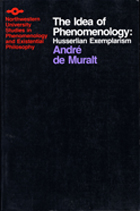

Private law is a familiar and pervasive phenomenon. It applies our deepest intuitions about personal responsibility and justice to the property we own and use, to the injuries we inflict or avoid, and to the contracts which we make or break. The Idea of Private Law offers a new way of understanding this phenomenon. Rejecting the functionalism popular among legal scholars, Ernest Weinrib advances the provocative idea that private law is an autonomous and noninstrumental moral practice, with its own structure and rationality. Weinrib draws on Kant and Aristotle to set out a formalist approach to private law that repudiates the identification of law with politics or economics. Weinrib argues that private law is to be understood not as a mechanism for promoting efficiency but as a juridical enterprise in which coherent public reason elaborates the norms implicit in the parties' interaction. The book combines philosophical exposition and legal analysis, and pays special attention to issues of tort law.
Private law, Weinrib tells us, embodies a special morality that links the doer and the sufferer of harm. Weinrib elucidates the standpoint internal to this morality, in opposition to functionalists, who view private law as an instrument in the service of external and independently justifiable goals. After establishing the inadequacy of functionalist approaches, Weinrib traces the implications of the formalism he proposes for our ideas of the structure, coherence, and normative grounding of private law. Furthermore, the author shows how this formalism manifests itself in the leading doctrines of private law liability. Finally, he describes the public but nonpolitical role of the courts in articulating the special morality of private law.
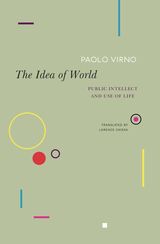
A short vade mecum for unrepentant materialism, The Idea of World collects three essays by Italian philosopher Paulo Virno that are intricately wrapped around one another. The first essay, “Mundanity,” tries to clarify what the term “world,” as referred to as the perceptual and historical context of our existence, means—both with and against Kant and Wittgenstein. How should we understand expressions such as “worldly people,” “the course of the world,” or “getting by in this world”? The second, “Virtuosity and Revolution,” is a minor political treatise. Virno puts forward a set of concepts capable of confronting the magnetic storm that has knocked out the compasses that every reflection on the public sphere has relied on since the seventeenth century. The third, “The Use of Life”, is the shorthand delineation of a research program on the notion of use. What exactly are we doing when we use a hammer, a time span, or an ironic sentence? And, above all, what does the use of the self—of one’s own life, which lies at the basis of all uses—amount to in human existence?
Presenting his ideas in three distinct vignettes, Virno examines how the philosophy of language, anthropology, and political theory are inextricably linked.
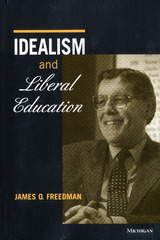
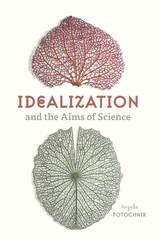
Idealization and the Aims of Science shows just how crucial idealization is to science and why it matters. Beginning with the acknowledgment of our status as limited human agents trying to make sense of an exceedingly complex world, Angela Potochnik moves on to explain how science aims to depict and make use of causal patterns—a project that makes essential use of idealization. She offers case studies from a number of branches of science to demonstrate the ubiquity of idealization, shows how causal patterns are used to develop scientific explanations, and describes how the necessarily imperfect connection between science and truth leads to researchers’ values influencing their findings. The resulting book is a tour de force, a synthesis of the study of idealization that also offers countless new insights and avenues for future exploration.

Benjamin Schwartz taught at Harvard from 1950 until his retirement in 1987. Through his teaching and writing, he became a major force in the field of Chinese studies, setting standards—above all in the area of intellectual history—that have been a source of inspiration to students and scholars worldwide. His influence extends well beyond the China field, cutting across conventional disciplinary boundaries, touching political science, religion, philosophy, and literature as well as history.
The essays in this book are by scholars who have studied with Benjamin Schwartz. Given the range of his own interests, it is fitting that they embrace an expanse of time from the Zhou dynasty to the present and a range of subjects equally inclusive—ancient and medieval Chinese thought, the fate of democracy in early Republican China, the development of aesthetic modernism in the 1920s and 1930s and its reemergence in the post-Mao era, the emphasis on spiritual regeneration and cultural transformation in Chinese and Japanese Marxism, popular values in twentieth-century China (as reflected in village theatrical performances), the larger issue of what part our own values should take in the study and assessment of other societies and cultures, and the equally broad issue of how we are to address the relationship between Chinese modernization and China’s traditional culture.
Despite this heterogeneity and the fact that the contributors include two political scientists, five historians with strong philosophical interests, and three scholars whose writing bridges the disciplines of history and literature, there is a surprising coherence to the volume. Almost all the authors consciously address either aspects of Schwartz’s general approach or specific themes dealt with in his work. Each contribution is about ideas and takes ideas and their societal roles seriously. Although presented in the specific context of China, the issues raised in these essays are important to the world beyond China. Exploring them in both their Chinese and non-Chinese settings reflects the power of Schwartz’s own work in illuminating a broader canvas of human thought.
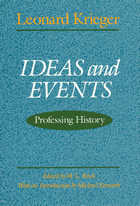
This book reflects Krieger's conviction that the value of intellectual history is as a source of orientation in a world of information overload. In Krieger's hands, intellectual history has stressed "thinking-through" the relations between ideas and events rather than the compilation and recapitulation of mere facts and historical categories.
The essays in this collection cover a range of topics, including history of ideas, intellectual history, early modern political history, German political history, Hegel, Marx, and more. Many of these essays are already classics of historical scholarship. With the demise of the Soviet Union and state-sponsored Marxism, and with the reunification of Germany, Krieger's history takes on new relevance and a renewed importance.
With a splendid introduction by Michael Ermath, and an extensive bibliography of Krieger's most important books and essays, this is a "must read" for every serious student of modern history.
Leonard Krieger was University Professor Emeritus in the Department of History at the University of Chicago until his death in 1990.
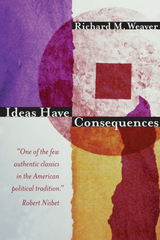
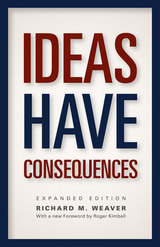
In its pages, Richard M. Weaver argues that the decline of Western civilization resulted from the rising acceptance of relativism over absolute reality. In spite of increased knowledge, this retreat from the realist intellectual tradition has weakened the Western capacity to reason, with catastrophic consequences for social order and individual rights. But Weaver also offers a realistic remedy. These difficulties are the product not of necessity, but of intelligent choice. And, today, as decades ago, the remedy lies in the renewed acceptance of absolute reality and the recognition that ideas—like actions—have consequences.
This expanded edition of the classic work contains a foreword by New Criterion editor Roger Kimball that offers insight into the rich intellectual and historical contexts of Weaver and his work and an afterword by Ted J. Smith III that relates the remarkable story of the book’s writing and publication.
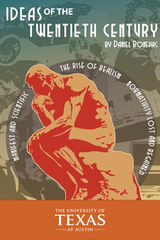
The twentieth century ushered in significant progress, as philosophers, scientists, artists, and poets across the world improved the way we lived. Yet the last century also brought increased levels of war, tyranny, and genocide, and people lost faith in values. Now, thinkers and leaders are reconstructing theories of value and creating institutions to embody them. In this thought-provoking, broad-sweeping course, you will learn how philosophy, art, literature, and history shaped the past century and continue to impact our world today.
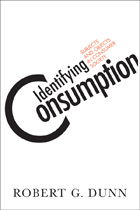
Identifying Consumption illustrates how an individual’s buying habits are shaped by the dynamics of the consumer marketplace—and thus how consumption and identity inform each other. Robert Dunn brings together the various theories of spending and develops a mode of analysis concentrating on the individual subjectivity of consumption. By doing so, he addresses how we spend and its relationship with status and lifestyle.
Dunn provides a comprehensive guide to the study of modern consumer behavior before summarizing and critiquing the major theories of consumption. At this juncture, he proposes a method of analysis that focuses on the significance of status and lifestyle in social relations that can help explain how the consumer marketplace is shaped. He concludes by raising issues about different ways of consuming and the relationship between consumption and identity.
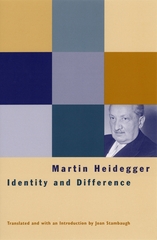
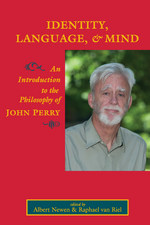
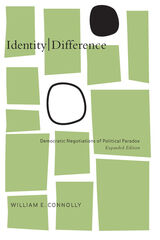
A new edition of this classic work on the idea of difference.
In this foundational work in contemporary political theory, William Connolly makes a distinctive contribution to our understanding of the relationship between personal identity and democratic politics, particularly in the domains of religion, ethics, sexuality, and ethnicity. Every identity, Connolly argues, whether individual or social, presents us with a fundamental and troubling paradox: an identity establishes itself in relation to a set of differences, and it operates under powerful pressures to fix, regulate, or exclude some of these differences as otherness. The dignity of a people or political regime, and the quality of democratic culture, depends on the acknowledgment and ethos cultivated in response to these pressures.
In a substantial new essay, Connolly responds to the heated controversy surrounding his ideas when Identity\Difference was first published in 1991, while augmenting his discussion of the virtues of critical responsiveness. The issues of identity and difference cannot be ignored, he contends, and are ubiquitous in modern life.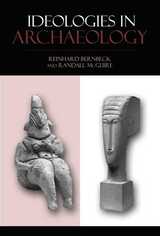
Contributors to this volume focus on elements of life in past societies that “went without saying” and that concealed different forms of power as obvious and unquestionable. From the use of burial rites as political theater in Iron Age Germany to the intersection of economics and elite power in Mississippian mound building, the contributors uncover complex manipulations of power that have often gone unrecognized. They show that Occam’s razor—the tendency to favor simpler explanations—is sometimes just an excuse to avoid dealing with the historical world in its full complexity.
Jean-Paul Demoule’s concluding chapter echoes this sentiment and moreover brings a continental European perspective to the preceding case studies. In addition to situating this volume in a wider history of archaeological currents, Demoule identifies the institutional and cultural factors that may account for the current direction in North American archaeology. He also offers a defense of archaeology in an era of scientific relativism, which leads him to reflect on the responsibilities of archaeologists.
Includes contributions by: Susan M. Alt, Bettina Arnold, Uzi Baram, Reinhard Bernbeck, Matthew David Cochran, Jean-Paul Demoule, Kurt A. Jordan, Susan Kus, Vicente Lull, Christopher N. Matthews, Randall H. McGuire, Rafael Micó, Cristina Rihuete Herrada, Paul Mullins, Sue Novinger, Susan Pollock, Victor Raharijaona, Roberto Risch, Kathleen Sterling, Ruth M. Van Dyke, and LouAnn Wurst

Constructing a new vocabulary with which to understand contemporary society, Curtis examines 'idiotism' across the spheres of economics, politics and culture, drawing on the philosophy and political theories of Martin Heidegger, Louis Althusser, Franco Berardi, Jacques Rancière and Cornelius Castoriadis.
Idiotism recasts our conception of the new neoliberal 'common sense', presenting it as not simply a case of false consciousness, but an ontological problem related to our being-in-the-world.
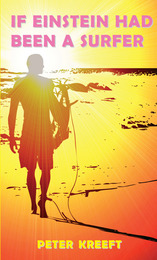
In this book all three dimensions of consciousness not only speak about a “theory of everything” but speak to each other in dialog. The three voices are incarnated in three characters from an upcoming novel, An Ocean Full of Angels: Evan Jellema is a theoretical physicist (and a clumsy Dutchman), ’Isa Ben Adam is a philosophical Muslim (and cantankerously clear), and Libby Rawls is a poet, mystic, and surfer (and a sassy, classy Black feminist).
Isn’t “surfer” a bit of a stretch? Not at all. Actually, the papers reported last year that an amateur scientist has in fact finally discovered, or claimed to have discovered, the “theory of everything” that Einstein failed to find and that scientists have been searching for ever since – and he is a surfer! Perhaps this is no accident, but a natural connection: the mind of the “soul surfer,” having become one with the sea, has awakened its “third eye” which alone gives the scientist the binocular vision, the synoptic perspective, that he lacks. And perhaps only a philosopher can mediate the two other modes of vision, as Aquinas mediated and synthesized the science of Albert the Great and Aristotle with the poetry and symbolism of mystics like Augustine.
This lively trialog, full of irony, intellectual surprise, and humor, is a serious call for a post-medieval synthesis. It does not claim to have arrived anywhere near the end of a journey to a “Theory of Everything,” only to have begun it. Even that modest ambition will certainly be criticized a priori as impossibly ambitious. Does that tell you anything about the book, or does it tell you something about the critic?
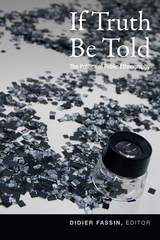
Contributors. Jonathan Benthall, Lucas Bessire, João Biehl, Gabriella Coleman, Manuela Ivone Cunha, Vincent Dubois, Nadia Abu El-Haj, Didier Fassin, Kelly Gillespie, Ghassan Hage, Sherine Hamdy, Federico Neiburg, Unni Wikan
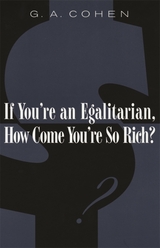
This book presents G. A. Cohen's Gifford Lectures, delivered at the University of Edinburgh in 1996. Focusing on Marxism and Rawlsian liberalism, Cohen draws a connection between these thought systems and the choices that shape a person's life. In the case of Marxism, the relevant life is his own: a communist upbringing in the 1940s in Montreal, which induced a belief in a strongly socialist egalitarian doctrine. The narrative of Cohen's reckoning with that inheritance develops through a series of sophisticated engagements with the central questions of social and political philosophy.
In the case of Rawlsian doctrine, Cohen looks to people's lives in general. He argues that egalitarian justice is not only, as Rawlsian liberalism teaches, a matter of rules that define the structure of society, but also a matter of personal attitude and choice. Personal attitude and choice are, moreover, the stuff of which social structure itself is made. Those truths have not informed political philosophy as much as they should, and Cohen's focus on them brings political philosophy closer to moral philosophy, and to the Judeo-Christian ethical tradition, than it has recently been.


Readers familiar with Castiglione's The Courtier will welcome this translation of Ellis Heywood's Il Moro, which also uses a conversation among friends as a vehicle for expressing philosophical points of view. Written by an Englishman in Italian, it now makes its first appearance in English translation since it was published in 1556.
In Il Moro Heywood constructs a presumably imaginary debate about the nature of true happiness between his great-uncle Sir Thomas More and six of More's friends. As each speaker presents his views, conflicting currents in Renaissance moral philosophy are made explicit. The merchant Laurence presents the cynical view that men are motivated solely by self-interest and thus seek riches as their greatest happiness; Charles, a dabbler in Neo-Stoicism, argues for virtue and the honor it confers; while Peter defines happiness as based on love, after the fashion of the Neo-Platonists. After these alternatives are dismissed, Leonard maintains that happiness is relative to the individual, Alexander opts for knowledge, and Paul holds forth on the theme that seeking happiness is the worst kind of vanity.
More then reconciles these antagonistic views from the standpoint of a Christian humanist. Happiness, says More, is to be found in the control of appetite by reason, that divine faculty in man which uses the things of this world as instruments for working out the full implications of one's relation to God.
Heywood's principal intention in composing this dialogue about happiness seems to have been to provide posterity with a loving memorial of one of England's greatest humanists. Roger Deakins, in his introduction, discusses the circumstances under which the work was written and sketches the philosophical background in classical, Thomistic, and Renaissance Italian literature. The original Italian text has been reproduced in the back of the volume.
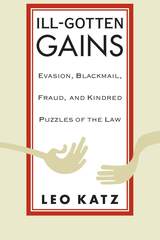
"An ambitious and well-written book of legal and moral theory to overthrow both utilitarianism and its cousin, the economic approach to law."—Richard A. Posner, New Republic
"A good, well-written book full of interesting examples."—Library Journal
"[An] elegant defense of circumvention and subterfuge . . . a heroically counterintuitive book."—Malcolm Gladwell, New Yorker
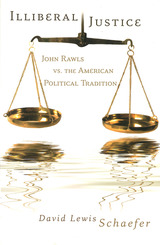
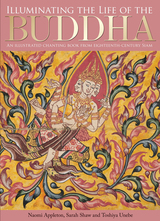
Affording readers immense insight into a spectacular eighteenth-century manuscript, and Thai Buddhist manuscripts and temple culture as a whole, this book will be of great interest to art historians and scholars of Buddhism and Southeast Asia.

The writings of Francis Hutcheson played a central role in the development of British moral philosophy in the eighteenth century. His Illustrations on the Moral Sense is significant not only historically but also for its exploration of problems of concern in contemporary ethics. Yet except for brief selections it has not appeared in print since the eighteenth century.
Independent moral philosophy began in England with Hobbes and the reactions to his views, in which two divergent strains were implicit: one a rationalistic appeal to eternal and immutable essences and the other an empirical appeal to human affections and desires. Hutcheson countered Hobbes' theory, which was based on self interest, with a theory based on the moral sense and made explicit the opposition between the school of reason and the school of sentiment. His treatment of these and other issues set British moral philosophy on a line of development that has continued to the present.
This edition of Illustrations on the Moral Sense again makes available Hutcheson's contributions to normative ethics and metaethics, thus making possible a more accurate evaluation of his significance in the history of ethics. His epistemology of morals and his theory of justification are critically examined in a substantial introduction by the editor, Bernard Peach. In addition, Hutcheson's correspondence with Gilbert Burnet, the Younger, which is central to an understanding of the controversies in British moral philosophy in the eighteenth century, is made accessible here for the first time since 1735 in an extensive appendix.
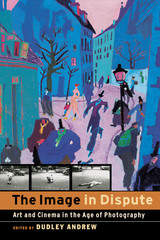
Photography, cinema, and video have irrevocably changed the ways in which we view and interpret images. Indeed, the mechanical reproduction of images was a central preoccupation of twentieth-century philosopher Walter Benjamin, who recognized that film would become a vehicle not only for the entertainment of the masses but also for consumerism and even communism and fascism.
In this volume, experts in film studies and art history take up the debate, begun by Benjamin, about the power and scope of the image in a secular age. Part I aims to bring Benjamin's concerns to life in essays that evoke specific aspects and moments of the visual culture he would have known. Part II focuses on precise instances of friction within the traditional arts brought on by this century's changes in the value and mission of images. Part III goes straight to the image technologies themselves—photography, cinema, and video—to isolate distinctive features of the visual cultures they help constitute.
As we advance into the postmodern era, in which images play an ever more central role in conveying perceptions and information, this anthology provides a crucial context for understanding the apparently irreversible shift from words to images that characterized the modernist period. It will be important reading for everyone in cultural studies, film and media studies, and art history.
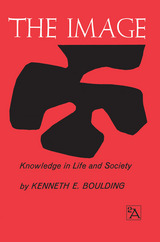
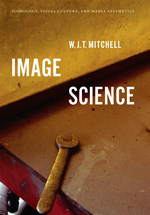
Continuing with this influential line of thought, Image Science gathers Mitchell’s most recent essays on media aesthetics, visual culture, and artistic symbolism. The chapters delve into such topics as the physics and biology of images, digital photography and realism, architecture and new media, and the occupation of space in contemporary popular uprisings. The book looks both backward at the emergence of iconology as a field and forward toward what might be possible if image science can indeed approach pictures the same way that empirical sciences approach natural phenomena.
Essential for those involved with any aspect of visual media, Image Science is a brilliant call for a method of studying images that overcomes the “two-culture split” between the natural and human sciences.
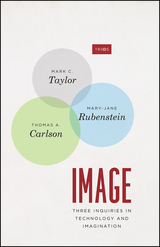
Modern life is steeped in images, image-making, and attempts to control the world through vision. Mastery of images has been advanced by technologies that expand and reshape vision and enable us to create, store, transmit, and display images. The three essays in Image, written by leading philosophers of religion Mark C. Taylor, Mary-Jane Rubenstein, and Thomas A. Carlson, explore the power of the visual at the intersection of the human and the technological. Building on Heidegger’s notion that modern humanity aims to master the world by picturing or representing the real, they investigate the contemporary culture of the image in its philosophical, religious, economic, political, imperial, and military dimensions, challenging the abstraction, anonymity, and dangerous disconnection of contemporary images.
Taylor traces a history of capitalism, focusing on its lack of humility, particularly in the face of mortality, and he considers art as a possible way to reconnect us to the earth. Through a genealogy of iconic views from space, Rubenstein exposes the delusions of conquest associated with extraterrestrial travel. Starting with the pressing issues of surveillance capitalism and facial recognition technology, Carlson extends Heidegger’s analysis through a meditation on the telematic elimination of the individual brought about by totalizing technologies. Together, these essays call for a consideration of how we can act responsibly toward the past in a way that preserves the earth for future generations. Attending to the fragility of material things and to our own mortality, they propose new practices of imagination grounded in love and humility.
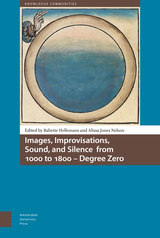
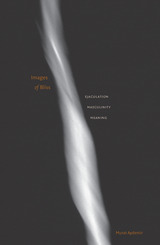
Aristotle believed semen to be the purest of all bodily secretions, a vehicle for the spirit or psyche that gives form to substance. For Proust’s narrator in Swann’s Way, waking to find he has experienced a nocturnal emission, it is the product of “some misplacing of my thigh.” The heavy metal band Metallica used it to adorn an album cover. Beyond its biological function, semen has been applied with surprising frequency to metaphorical and narratological purposes.
In Images of Bliss, Murat Aydemir undertakes an original and extensive analysis of images of male orgasm and semen. In a series of detailed case studies—Aristotle’s On the Generation of Animals; Andres Serrano’s use of bodily fluids in his art; paintings by Holbein and Leonardo; Proust’s In Search of Lost Time; hard-core pornography (both straight and gay); and key texts from the poststructuralist canon, including Lacan on the phallus, Bataille on expenditure, Barthes on bliss, and Derrida on dissemination—Aydemir traces the complex and often contradictory possibilities for imagination, description, and cognition that both the idea and the reality of semen make available. In particular, he foregrounds the significance of male ejaculation for masculine subjectivity. More often than not, Aydemir argues, the event or object of ejaculation emerges as the instance through which identity, meaning, and gender are not so much affirmed as they are relentlessly and productively questioned, complicated, and displaced.
Combining close readings of diverse works with subtle theoretical elaboration and a keen eye for the cultural ideals and anxieties attached to sexuality, Images of Bliss offers a convincing and long overdue critical exploration of ejaculation in Western culture.
Murat Aydemir is assistant professor of comparative literature at the University of Amsterdam.
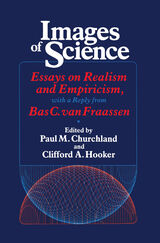
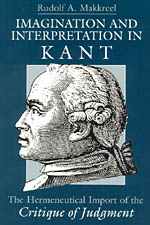

A radical rethinking of the theory and the experience of mental images
Here, in English translation for the first time, is Gilbert Simondon’s fundamental reconception of the mental image and the theory of imagination and invention. Drawing on a vast range of mid-twentieth-century theoretical resources—from experimental psychology, cybernetics, and ethology to the phenomenological reflections of Sartre and Merleau-Ponty—Imagination and Invention provides a comprehensive account of the mental image and adds a vital new dimension to the theory of psychical individuation in Simondon’s earlier, highly influential work.
Simondon traces the development of the mental image through four phases: first a bundle of motor anticipations, the image becomes a cognitive system that mediates the organism’s relation to its milieu, then a symbolic and abstract integration of motor and affective experience to, finally, invention, a solution to a problem of life that requires the externalization of the mental image and the creation of a technical object. An image cannot be understood from the perspective of one phase alone, he argues, but only within the trajectory of its progressive metamorphosis.
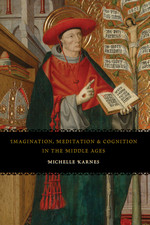
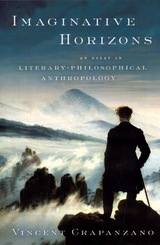
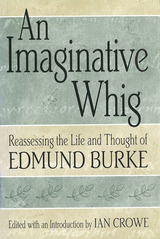
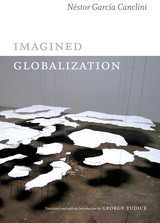
García Canclini contrasts the imaginaries of previous migrants to the Americas with those who live in transnational circuits today. He integrates metaphor and narrative, working through philosophical, anthropological, and socioeconomically grounded interpretations of art, literature, crafts, media, and other forms of expression toward his conclusion that globalization is, in important ways, a collection of heterogeneous narratives. García Canclini advocates global imaginaries that generate new strategies for dealing with contingency and produce new forms of citizenship oriented toward multiple social configurations rather than homogenization. This edition of Imagined Globalization includes a significant new introduction by George Yúdice and an interview in which the cultural theorist Toby Miller and García Canclini touch on events including the Arab Spring and Occupy Wall Street.
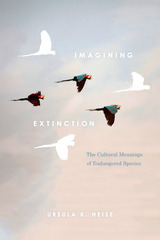
Ursula K. Heise argues that understanding these stories and symbols is indispensable for any effective advocacy on behalf of endangered species. More than that, she shows how biodiversity conservation, even and especially in its scientific and legal dimensions, is shaped by cultural assumptions about what is valuable in nature and what is not. These assumptions are hardwired into even seemingly neutral tools such as biodiversity databases and laws for the protection of endangered species. Heise shows that the conflicts and convergences of biodiversity conservation with animal welfare advocacy, environmental justice, and discussions about the Anthropocene open up a new vision of multispecies justice. Ultimately, Imagining Extinction demonstrates that biodiversity, endangered species, and extinction are not only scientific questions but issues of histories, cultures, and values.
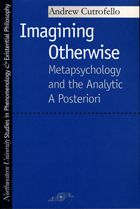
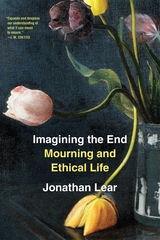
A Washington Post Notable Work of Nonfiction
A Chronicle of Higher Education Best Scholarly Book
“A deeply insightful and thought-enriching work by one of the most original philosophers writing today. Imagining the End is acutely aware of the danger we stand in of finding ourselves on an uninhabitable planet. But Lear is also aware of how the consciousness of impending loss can bring out the illumination inherent in meaningful life, often occluded in day-to-day living.”
–Charles Taylor, author of A Secular Age
“Lear is a lovely and subtle writer, someone who has a rare capacity to introduce ways of seeing and interrogating the world that dignify our confusion and pain while also opening up new possibilities for moving forward.”–Daniel Oppenheimer, Washington Post
The range of Jonathan Lear’s abilities—as a philosopher and psychoanalyst who draws from ancient and modern thought, personal history, and everyday experience to help us think about how we can flourish in a world of flux and finitude—is on full display in Imagining the End. Lear masterfully explores how we respond to loss, crisis, and hope, considering our bewilderment in the face of planetary catastrophe. He examines the role of the humanities in expanding our imaginative and emotional repertoire.
How might we live, he asks, when we realize just how vulnerable the cultures to which we traditionally turn for solace might be? He addresses how mourning can help us thrive, the role of moral exemplars in shaping our sense of the good, and the place of gratitude in human life. Along the way, he touches on figures as diverse as Aristotle, Abraham Lincoln, Sigmund Freud, and the British royals Harry and Meghan. Written with Lear’s characteristic elegance, philosophical depth, and psychological perceptiveness, Imagining the End is a powerful meditation on persistence in an age of turbulence and anxiety.
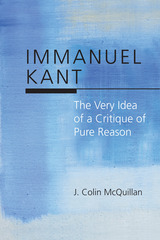
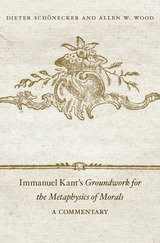
A defining work of moral philosophy, Kant’s Groundwork for the Metaphysics of Morals has been influential to an extent far beyond what its modest length (roughly 75 pages) might suggest. It is also a famously difficult work, concerned with propounding universal principles rather than answering practical questions. As even professional philosophers will admit, first-time readers are not alone in finding some of its arguments perplexing.
Offering an introduction that is accessible to students and relevant to specialized scholars, Dieter Schönecker and Allen Wood make luminously clear the ways the Groundwork for the Metaphysics of Morals forms the basis of our modern moral outlook: that all human beings have equal dignity as ends in themselves; that every rational being is a self-governing agent whose morality freely derives from his or her own will; and that all rational beings constitute an ideal community, bound only by the moral laws they have agreed upon. Schönecker and Wood explain key Kantian concepts of duty, the good will, and moral worth, as well as the propositions Kant uses to derive his conception of the moral law. How the law relates to freedom, and the significance of the free will within Kant’s overall philosophy are rigorously interrogated. Where differing interpretations of Kant’s claims are possible, the authors provide alternative options, giving arguments for each. This critical introduction will help readers of the Groundwork gain an informed understanding of Kant’s challenging but central philosophical work.
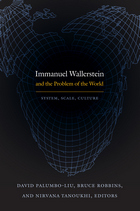
Contributors. Gopal Balakrishnan, Tani E. Barlow, Neil Brenner, Richard E. Lee, Franco Moretti, David Palumbo-Liu, Bruce Robbins, Helen Stacy, Nirvana Tanoukhi, Immanuel Wallerstein, Kären Wigen

Vienna, 1825. News of a sickly, listless boy is making the rounds. In broad daylight, he falls into deep sleep and his personality changes dramatically. While sleeping, he reads, writes, plays cards, challenges his doctors with amusement, and accomplishes the most astonishing of exercises with his eyes closed. A new subject has appeared, a second “I” has now supplanted the first.
Andrea Cavalletti carefully registers the disquieting appearances of this second “I” in the literature and psychology of the past two centuries. In a context dominated by amnesia and somnambulism, hallucinations and wakeful dreams, the bourgeois subject, whose identity seemed so stable, turns out to be inhabited by masks that elude every grasp, at the mercy of a doubling that can no longer be recomposed. Personalities multiply and do battle, as even life and death exchange roles. And, ultimately, the identity of the Western subject reveals itself as a shade-like, constitutively double figure, that only lives in its weakness and forgetting, in its losses and distractions.
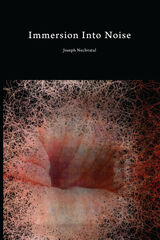
By refining the definition of noise as that which addresses us outside of our preferred comfort zone, Joseph Nechvatal's Immersion Into Noise investigates multiple aspects of cultural noise by applying the audio understanding of noise to the visual, architectural and cognitive domains. Nechvatal expands and extends our understanding of the function of cultural noise by taking the reader through the immersive and phenomenal aspects of noise into algorithmic and network contexts, beginning with his experience in the Abside of the Grotte de Lascaux.
Immersion Into Noise is intended as a conceptual handbook useful for the development of a personal-political-visionary art of noise. On a planet that is increasingly technologically linked and globally mediated, how might noises break and re-connect in distinctive and productive ways within practices located in the world of art and thought? Joseph Nechvatal explores this intriguing question in Immersion Into Noise.

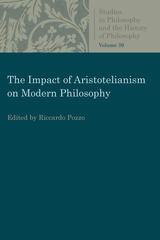
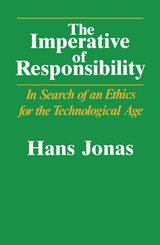

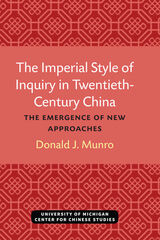

Imperiled Destinies examines the evolution of Daoist beliefs about human liability and redemption over eight centuries and outlines ritual procedures for rescuing an ill‐starred destiny. From the second through the tenth century CE, Daoism emerged as a liturgical organization that engaged vigorously with Buddhism and transformed Chinese thinking about suffering, the nature of evil, and the aims of liberation. In the fifth century, elements of classical Daoism combined with Indian yogic practices to interiorize the quest for deliverance.
The medieval record portrays a world engulfed by evil, where human existence was mortgaged from birth and burdened by increasing debts and obligations in this world and the next. Against this gloomy outlook, Daoism offered ritual and sacramental instruments capable of acting on the unseen world, providing therapeutic relief and ecstatic release from apprehensions of death, disease, war, spoilt harvests, and loss. Drawing on prayer texts, liturgical sermons, and experiential narratives, Franciscus Verellen focuses on the Daoist vocabulary of bondage and redemption, the changing meanings of sacrifice, and metaphoric conceptualizations bridging the visible and invisible realms. The language of medieval supplicants envisaged the redemption of an imperiled destiny as debt forgiveness, and deliverance as healing, purification, release, or emergence from darkness into light.
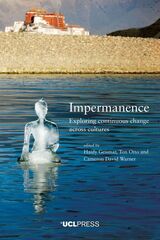
Nothing lasts forever. This common experience can be the source of much anxiety, but also of hope. The concept of impermanence or continuous change opens up a range of timely questions and discussions that speak to globally shared experiences of transformation and concerns for the future. Impermanence engages with an emergent body of social theory that emphasizes flux and transformation and brings it into a dialogue with other traditions of thought and practice, such as Buddhism, that have sustained a long-lasting and sophisticated meditation on impermanence.
In cases drawn from all over the world, this volume investigates the significance of impermanence in such diverse contexts as social death, atheism, alcoholism, migration, ritual, fashion, oncology, museums, cultural heritage, and art. The authors draw on a wide range of disciplines, including anthropology, archaeology, art history, Buddhist studies, cultural geography, and museology. This volume also includes numerous photographs, artworks, and poems that evocatively communicate notions and experiences of impermanence.
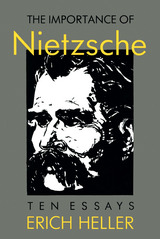
Nietzsche prided himself on having broken with all traditional ways of thinking and feeling, and once even claimed that he would someday be recognized for having ushered in a new millennium. While acknowledging Nietzsche's radicalism, Heller also insists on the continuity of the story in which he does indeed occupy a central place. By considering Nietzsche in relation to Goethe, Rilke, Wittgenstein, Yeats, and others, Heller shows the philosopher's ambivalence toward the tradition he inherited as well as his profound effect on the thought and sensibility of those who followed him. It is hardly an exaggeration to say, as Heller does in his first essay, that Nietzsche is to many modern writers and thinkers—including Mann, Musil, Kafka, Freud, Heidegger, Jaspers, Gide, and Sartre—what St. Thomas Aquinas was to Dante: the categorical interpreter of a world, which they contemplate imaginatively and theoretically without ever much upsetting its Nietzschean structure.
Thus it is Nietzsche's thought, so pervasively present in the themes of modernity, that gives coherence and unity to Heller's essays. What emerges from them is that, despite his iconoclastic declarations and unorthodox philosophical practices, Nietzsche deals with the human spirit's persistent concerns. His questions remain urgent, and even the answers, in all their contradictoriness, possess the commanding force of his inquiry. An example is the incompatibility of the famous extremes, the teaching of the Übermensch and the Eternal Recurrence of All Things. These cancel each other out and yet grow from the same intellectual and spiritual roots, as is shown lucidly and cogently by one of Heller's most forceful essays, "Nietzsche's Terrors: Time and the Inarticulate." In fathoming the depth of this contradiction, Heller at the same time reveals the importance of Nietzsche for those who seek to understand the wellsprings of the epoch's disquiet, turmoil, and creativity.
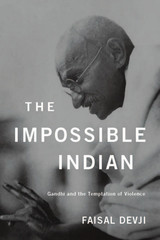
The Impossible Indian offers a rare, fresh view of Gandhi as a hard-hitting political thinker willing to countenance the greatest violence in pursuit of a global vision that went far beyond a nationalist agenda. Revising the conventional view of the Mahatma as an isolated Indian moralist detached from the mainstream of twentieth-century politics, Faisal Devji offers a provocative new genealogy of Gandhian thought, one that is not rooted in a clichéd alternative history of spiritual India but arises from a tradition of conquest and violence in the battlefields of 1857.
Focusing on his unsentimental engagement with the hard facts of imperial domination, Fascism, and civil war, Devji recasts Gandhi as a man at the center of modern history. Rejecting Western notions of the rights of man, rights which can only be bestowed by a state, Gandhi turned instead to the idea of dharma, or ethical duty, as the true source of the self’s sovereignty, independent of the state. Devji demonstrates that Gandhi’s dealings with violence, guided by his idea of ethical duty, were more radical than those of contemporary revolutionists.
To make sense of this seemingly incongruous relationship with violence, Devji returns to Gandhi’s writings and explores his engagement with issues beyond India’s struggle for home rule. Devji reintroduces Gandhi to a global audience in search of leadership at a time of extraordinary strife as a thinker who understood how life’s quotidian reality could be revolutionized to extraordinary effect.
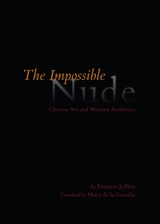
The undraped human form is ubiquitous in Western art and even appears in the art of India and Japan. Only in China, François Jullien argues, is the nude completely absent. In this enthralling extended essay, he explores the different conceptions of the human body that underlie this provocative disparity.
Contrasting nakedness (which implies a diminished state) with nudity (which represents a complete presence), Jullien explores the traditional European vision of the nude as a fixed point of fusion where form joins truth. He then shows that the absence of the nude in Chinese art evinces an understanding of the human body as changeable and transitory. Viewed in light of each other, these differing concepts allow for a new way of thinking about form, the ideal, and beauty, enabling us to delve deeper into the relationship between art and the ideas that lie at its roots. Beautifully illustrated and gracefully translated into English for the first time, The Impossible Nude will fascinate anyone interested in art history, Chinese art, or aesthetics.
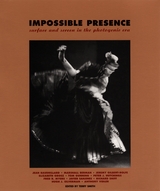
Framed by Terry Smith's introduction, the essays focus on two kinds of strangeness involved in experiencing visual images in the modern era. The first, explored in the book's first half, involves the appearance of oddities or phantasmagoria in early photographs and cinema. The second type of strangeness involves art from marginalized groups and indigenous peoples, and the communicative formations that result from the trafficking of images between people from vastly different cultures. With a stellar list of contributors, Impossible Presence offers a wide-ranging look at the fate of the visual image in modernity, modern art, and popular culture.
Contributors:
Jean Baudrillard
Marshall Berman
Jeremy Gilbert-Rolfe
Elizabeth Grosz
Tom Gunning
Peter Hutchings
Fred R. Myers
Javier Sanjines
Richard Shiff
Hugh J. Silverman
Terry Smith
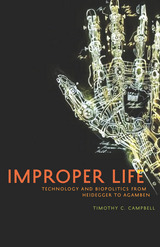
Has biopolitics actually become thanatopolitics, a field of study obsessed with death? Is there something about the nature of biopolitical thought today that makes it impossible to deploy affirmatively? If this is true, what can life-minded thinkers put forward as the merits of biopolitical reflection? These questions drive Improper Life, Timothy C. Campbell’s dexterous inquiry-as-intervention.
Campbell argues that a “crypto-thanatopolitics” can be teased out of Heidegger’s critique of technology and that some of the leading scholars of biopolitics—including Michel Foucault, Giorgio Agamben, and Peter Sloterdijk—have been substantively influenced by Heidegger’s thought, particularly his reading of proper and improper writing. In fact, Campbell shows how all of these philosophers have pointed toward a tragic, thanatopolitical destination as somehow an inevitable result of technology. But in Improper Life he articulates a corrective biopolitics that can begin with rereadings of Foucault (especially his late work regarding the care and technologies of the self), Freud (notably his writings on the drives and negation), and Gilles Deleuze (particularly in the relation of attention to aesthetics).
Throughout Improper Life, Campbell insists that biopolitics can become more positive and productively asserts an affirmative technē not thought through thanatos but rather practiced through bíos.

Improper Names offers a genealogy and theory of the “improper name,” which author Marco Deseriis defines as the adoption of the same pseudonym by organized collectives, affinity groups, and individual authors. Although such names are often invented to pursue a specific social or political agenda, they are soon appropriated for different and sometimes diverging purposes. This book examines the tension arising from struggles for control of a pseudonym’s symbolic power.
Deseriis provides five fascinating and widely varying case studies. Ned Ludd was the legendary and eponymous leader of the English Luddites, textile workers who threatened the destruction of industrial machinery and then advanced a variety of economic and political demands. Alan Smithee—an alias coined by Hollywood film directors in 1969 in order to disown films that were recut by producers—became a contested signature and was therefore no longer effective to signal prevarication to Hollywood insiders. Monty Cantsin was an “open pop star” created by U.S. and Canadian artists in the late 1970s to critique bourgeois notions of authorship, but its communal character was compromised by excessive identification with individual users of the name. The Italian media activists calling themselves Luther Blissett, aware of the Cantsin experience, implemented measures to prevent individuals from assuming the alias, which was used to author media pranks, sell apocryphal manuscripts to publishers, fabricate artists and artworks, and author best-selling novels. The longest chapter here is devoted to the contemporary “hacktivist” group known as Anonymous, which protests censorship and restricted access to information and information technologies.
After delving into a rich philosophical debate on community among those who have nothing in common, the book concludes with a reflection on how the politics of improper names affects present-day anticapitalist social movements such as Occupy and 15-M.
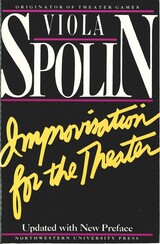
In Force, Drive, Desire, Rudolf Bernet develops a philosophical foundation of psychoanalysis focusing on human drives. Rather than simply drawing up a list of Freud’s borrowings from Schopenhauer and Nietzsche, or Lacan’s from Hegel and Sartre, Bernet orchestrates a dialogue between philosophy and psychoanalysis that goes far beyond what these eminent psychoanalysts knew about philosophy. By relating the writings of Freud, Lacan, and other psychoanalysts to those of Aristotle, Leibniz, Schopenhauer, Nietzsche, Husserl, Heidegger, and, more tacitly, Bergson and Deleuze, Bernet brings to light how psychoanalysis both prolongs and breaks with the history of Western metaphysics and philosophy of nature.
Rereading the long history of metaphysics (or at least a few of its key moments) in light of psychoanalytic inquiries into the nature and function of drive and desire also allows for a rewriting of the history of philosophy. Specifically, it allows Bernet to bring to light a different history of metaphysics, one centered less on Aristotelian substance (ousia) and more on the concept of dunamis—a power or potentiality for a realization toward which it strives with all its might. Relating human drives to metaphysical forces also bears fruit for a renewed philosophy of life and subjectivity.
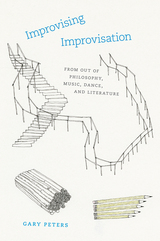
Guided by Kant, Hegel, Heidegger, and especially Deleuze—and exploring a range of artists from Hendrix to Borges—Peters illuminates new fundamentals about what, as an experience, improvisation truly is. As he shows, improvisation isn’t so much a genre, idiom, style, or technique—it’s a predicament we are thrown into, one we find ourselves in. The predicament, he shows, is a complex entwinement of choice and decision. The performativity of choice during improvisation may happen “in the moment,” but it is already determined by an a priori mode of decision. In this way, improvisation happens both within and around the actual moment, negotiating a simultaneous past, present, and future. Examining these and other often ignored dimensions of spontaneous creativity, Peters proposes a consistently challenging and rigorously argued new perspective on improvisation across an extraordinary range of disciplines.
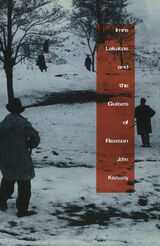
Lakatos escaped Hungary following the failed 1956 Revolution. Before then, he had been an influential Communist intellectual and was imprisoned for years by the Stalinist regime. He also wrote a lost doctoral thesis in the philosophy of science and participated in what was criminal behavior in all but a legal sense. Kadvany argues that this intellectual and political past animates Lakatos’s English-language philosophy, and that, whether intended or not, Lakatos integrated a penetrating vision of Hegelian ideas with rigorous analysis of mathematical proofs and controversial histories of science.
Including new applications of Lakatos’s ideas to the histories of mathematical logic and economics and providing lucid exegesis of many of Hegel’s basic ideas, Imre Lakatos and the Guises of Reason is an exciting reconstruction of ideas and episodes from the history of philosophy, science, mathematics, and modern political history.
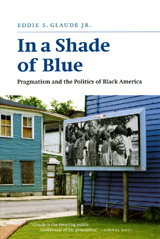
“Eddie Glaude is poised to become the leading intellectual voice of our generation, raising questions that make us reexamine the assumptions we hold by expanding our inventory of ideas.”—Tavis Smiley

One of the leading humanists of Quattrocento Italy, Lorenzo Valla (ca. 1406–1457) has been praised as a brilliant debunker of medieval scholastic philosophy. In this book Lodi Nauta seeks a more balanced assessment, presenting us with the first comprehensive analysis of the humanist’s attempt at radical reform of Aristotelian scholasticism.
This study examines Valla’s attack on major tenets of Aristotelian metaphysics, showing how Valla employed common sense and linguistic usage as his guides. It then explicates Valla’s critique of Aristotelian psychology and natural philosophy and discusses his moral and religious views, including Valla’s notorious identification of Christian beatitude with Epicurean pleasure and his daring views on the Trinity. Finally, it takes up Valla’s humanist dialectic, which seeks to transform logic into a practical tool measured by persuasiveness and effectiveness.
Nauta firmly places Valla’s arguments and ideas within the contexts of ancient and medieval philosophical traditions as well as renewed interest in ancient rhetoric in the Renaissance. He also demonstrates the relevance of Valla’s conviction that the philosophical problems of the scholastics are rooted in a misunderstanding of language. Combining philosophical exegesis and historical scholarship, this book offers a new approach to a major Renaissance thinker.


Scholars of public administration have historically too often been disdainful towards politics in the field, viewing political activities and interests as opportunities for corruption, mismanagement, and skewed priorities. Supporters of this anti-political stance have become even more strident in recent years, many of them advancing scientific models for the study and practice of public administration and governance.
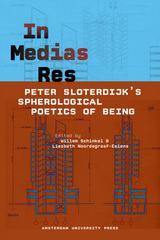

In Place/Out of Place was first published in 1996. Minnesota Archive Editions uses digital technology to make long-unavailable books once again accessible, and are published unaltered from the original University of Minnesota Press editions.
What is the relationship between place and behavior? In this fascinating volume, Tim Cresswell examines this question via "transgressive acts" that are judged as inappropriate not only because they are committed by marginalized groups but also because of where they occur.
In Place/Out of Place seeks to illustrate the ways in which the idea of geographical deviance is used as an ideological tool to maintain an established order. Cresswell looks at graffiti in New York City, the attempts by various "hippie" groups to hold a free festival at Stonehenge during the summer solstices of 1984–86, and the Greenham Common Women's Peace Camp in Berkshire, England. In each of the cases described, the groups involved were designated as out of place both by the media and by politicians, whose descriptions included an array of images such as dirt, disease, madness, and foreignness.
Cresswell argues that space and place are key factors in the definition of deviance and, conversely, that space and place are used to construct notions of order and propriety. In addition, whereas ideological concepts being expressed about what is good, just, and appropriate often are delineated geographically, the transgression of these delineations reveals the normally hidden relationships between place and ideology-in other words, the "out-of-place" serves to highlight and define the "in-place." By looking at the transgressions of the marginalized, Cresswell argues, we can gain a novel perspective on the "normal" and "taken-for-granted" expectations of everyday life. The book concludes with a consideration of the possibility of a "politics of transgression," arguing for a link between the challenging of spatial boundaries and the possibility of social transformation.
Tim Cresswell is currently lecturer in geography at the University of Wales.
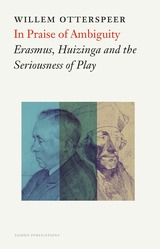
In Praise of Ambiguity presents a discourse about the seriousness of play. Erasmus and Huizinga are its main subjects, their books In Praise of Folly (1511) and Homo Ludens (1938) its main texts. Though published more than four hundred years apart, Otterspeer treats those books as contemporaries and asks what they still have to say to us. The main theme of both books is the contrast between two attitudes of life: the conviction that each subject has two or more sides as opposed to the certainty that there is always only one side to the subject. It is relativism versus essentialism, play versus seriousness.
In these times of populism and fundamentalism, the relationship between play and seriousness is more significant than ever. Erasmus and Huizinga conceive a compromise as brilliant as it is paradoxical: turn seriousness into play, play into seriousness. Their solution is the life blood of literature. Literature is always paradoxical, always "true" and "not true' at the same time, both reality and fiction. Ambiguity is its home territory. Literature is the best answer to the purity and peremptoriness of prophets.

“A thought-provoking—and academically rigorous—defense of the grace and aesthetic worth of sports.” —Sports Illustrated
By the hundreds of millions we show up, stand in line, turn on, and tune in to watch, mesmerized, as athletes perform. And yet this experience, so widely craved and intensely felt, we commonly dismiss as “only a game.” A book that looks beyond the usual explanations of why sports fascinates, In Praise of Athletic Beauty also strives for a language that can frame—even enhance—the pleasure we take in watching athletic events.
The vicarious thrill, anxiety release, competitive spirit: in place of these traditional answers to the mystery of sports’ allure, Hans Ulrich Gumbrecht proposes a more powerful and provocative alternative. The fascination with watching sports, he argues, is probably the most popular and potent contemporary form of aesthetic experience—in the classic, very literal sense of this concept. In exploring this idea, Gumbrecht develops a lucid reflection on the pleasures of sports spectatorship and the nature of athletic beauty. Where we might readily pronounce certain athletic moves and plays “beautiful,” this book gives us the means to explore, understand, and enjoy even more acutely the aesthetic experience that our words-in-passing barely suggest.
With a new perspective on the appreciation of—and, indeed, a new tone of praising—sports, Gumbrecht also offers a new way of narrating the history of athletics and a fresh vocabulary for analyzing various sports. Exploring athletic beauty, this book makes us understand the widespread passion sport inspires as an untamed form of aesthetic fascination.
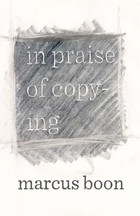
This book is devoted to a deceptively simple but original argument: that copying is an essential part of being human, that the ability to copy is worthy of celebration, and that, without recognizing how integral copying is to being human, we cannot understand ourselves or the world we live in.
In spite of the laws, stigmas, and anxieties attached to it, the word “copying” permeates contemporary culture, shaping discourse on issues from hip hop to digitization to gender reassignment, and is particularly crucial in legal debates concerning intellectual property and copyright. Yet as a philosophical concept, copying remains poorly understood. Working comparatively across cultures and times, Marcus Boon undertakes an examination of what this word means—historically, culturally, philosophically—and why it fills us with fear and fascination. He argues that the dominant legal-political structures that define copying today obscure much broader processes of imitation that have constituted human communities for ages and continue to shape various subcultures today. Drawing on contemporary art, music and film, the history of aesthetics, critical theory, and Buddhist philosophy and practice, In Praise of Copying seeks to show how and why copying works, what the sources of its power are, and the political stakes of renegotiating the way we value copying in the age of globalization.
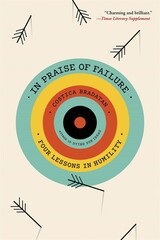
A New York Times Book Review Editors’ Choice
“Charming and brilliant.” —Times Literary Supplement
“Provocative, stimulating, wise―the book that our success-obsessed age needs to read.”―Tom Holland
“Bradatan, a philosopher, writes with elegance and wit, his every thought and sentence slipping smoothly into the next…I was absorbed by Bradatan’s book even—or especially—when I felt uncomfortable with its implications.” —Jennifer Szalai, New York Times
“Bradatan wears his erudition lightly. He is a pleasure to read, and his prose conveys a happy resilience in the face of life’s inevitable contradictions. His lessons in humility remind us that the pursuit of success is often motivated by the dread of failure—and that our attempts to create things are often driven by an avoidance of our mortality.” —Michael S. Roth, Washington Post
“Bradatan writes with the same daring, the same interpretive anger that made his subjects notorious in their own day for choosing failure over what their respective worlds counted as success. A gripping read, start to finish.” ―Jack Miles, author of God: A Biography
Our obsession with success is hard to overlook. Everywhere we compete, rank, and measure. Yet this relentless drive to be the best blinds us to something vitally important: the need to be humble in the face of life’s challenges.
In Praise of Failure explores several arenas of failure, from the social and political to the spiritual and biological. Gleefully breaching the boundaries between argument and storytelling, scholarship and spiritual quest, Costica Bradatan mounts his case for failure through the stories of four historical figures who led lives of impact and meaning and assiduously courted failure. Their struggles show that engaging with our limitations can be not just therapeutic but positively transformative.
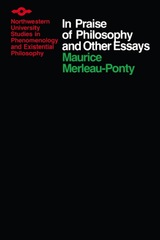

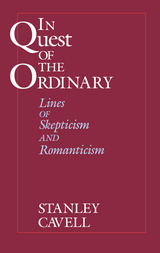
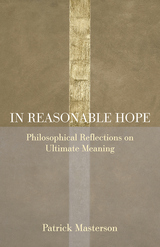
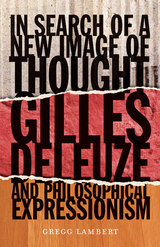
Gregg Lambert demonstrates that since the publication of Proust and Signs in 1964 Gilles Deleuze’s search for a new means of philosophical expression became a central theme of all of his oeuvre, including those written with psychoanalyst Félix Guattari. Lambert, like Deleuze, calls this “the image of thought.”
Lambert’s exploration begins with Deleuze’s earliest exposition of the Proustian image of thought and then follows the “tangled history” of the image that runs through subsequent works, such as Kafka: Toward a Minor Literature, The Rhizome (which serves as an introduction to Deleuze’s A Thousand Plateaus), and several later writings from the 1980s collected in Essays Critical and Clinical. Lambert shows how this topic underlies Deleuze’s studies of modern cinema, where the image of thought is predominant in the analysis of the cinematic image—particularly in The Time-Image. Lambert finds it to be the fundamental concern of the brain proposed by Deleuze in the conclusion of What Is Philosophy?
By connecting the various appearances of the image of thought that permeate Deleuze’s entire corpus, Lambert reveals how thinking first assumes an image, how the images of thought become identified with the problem of expression early in the works, and how this issue turns into a primary motive for the more experimental works of philosophy written with Guattari. The study traces a distinctly modern relationship between philosophy and non-philosophy (literature and cinema especially) that has developed into a hallmark of the term “Deleuzian.” However, Lambert argues, this aspect of the philosopher’s vision has not been fully appreciated in terms of its significance for philosophy: “not only ‘for today’ but, to quote Nietzsche, meaning also ‘for tomorrow, and for the day after tomorrow.’”
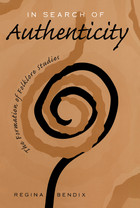
Searches for authenticity, Bendix contends, have been a constant companion to the feelings of loss inherent in modernization, forever upholding a belief in a pristine yet endangered cultural essence and fueling cultural nationalism worldwide. Beginning with precursors of Herder and Emerson and the “discovery” of the authentic in expressive culture and literature, she traces the different, albeit intertwined, histories of German Volkskunde and American folklore studies. A Swiss native educated in American folklore programs, Bendix moves effortlessly between the two traditions, demonstrating how the notion of authenticity was used not only to foster national causes, but also to lay the foundations for categories of documentation and analysis within the nascent field of folklore studies.
Bendix shows that, in an increasingly transcultural world, where Zulu singers back up Paul Simon and where indigenous artists seek copyright for their traditional crafts, the politics of authenticity mingles with the forces of the market. Arguing against the dichotomies implied in the very idea of authenticity, she underscores the emptiness of efforts to distinguish between folklore and fakelore, between echt and ersatz.
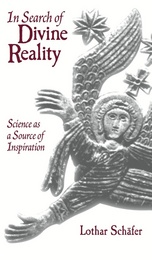
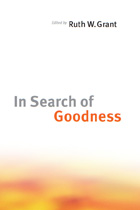
The recent spate of books and articles reflecting on the question of evil might make one forget that the question of just what constitutes goodness is no less urgent or perplexing. Everyone wants to think of him- or herself as good. But what does a good life look like? And how do people become good? Are there multiple, competing possibilities for what counts as a good life, all equally worthy? Or, is there a unified and transcendent conception of the good that should guide our judgment of the possibilities? What does a good life look like when it is guided by God? How is a good life involved with the lives of others? And, finally, how good is good enough?
These questions are the focus of In Search of Goodness, the product of a year-long conversation about goodness. The eight essays in this volume challenge the dichotomies that usually govern how goodness has been discussed in the past: altruism versus egoism; reason versus emotion; or moral choice versus moral character. Instead, the contributors seek to expand the terms of the discussion by coming at goodness from a variety of perspectives: psychological, philosophic, literary, religious, and political. In each case, they emphasize the lived realities and particulars of moral phenomena, taking up examples and illustrations from life, literature, and film. From Achilles and Billy Budd, to Oskar Schindler and Shel Silverstein’s The Giving Tree, to Iris Murdoch and the citizens of Flagstaff, Arizona, readers will find a wealth of thought-provoking insights to help them better understand this most basic, but complex, element of human life and happiness.
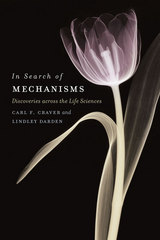
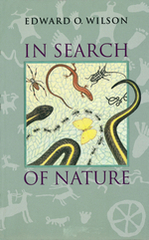
Perhaps more than any other scientist of our century, Edward O. Wilson has scrutinized animals in their natural settings, tweezing out the dynamics of their social organization, their relationship with their environments, and their behavior, not only for what it tells us about the animals themselves, but for what it can tell us about human nature and our own behavior. He has brought the fascinating and sometimes surprising results of these studies to general readers through a remarkable collection of books, including The Diversity of Life, The Ants, On Human Nature, and Sociobiology. The grace and precision with which he writes of seemingly complex topics has earned him two Pulitzer prizes, and the admiration of scientists and general readers around the world.
In Search of Nature presents for the first time a collection of the seminal short writings of Edward O. Wilson, addressing in brief and eminently readable form the themes that have actively engaged this remarkable intellect throughout his career.
""The central theme of the essays is that wild nature and human nature are closely interwoven. I argue that the only way to make complete sense of either is by examining both closely and together as products of evolution.... Human behavior is seen not just as the product of recorded history, ten thousand years recent, but of deep history, the combined genetic and cultural changes that created humanity over hundreds of thousands of years. We need this longer view, I believe, not only to understand our species, but more firmly to secure its future.
The book is composed of three sections. ""Animal Nature, Human Nature"" ranges from serpents to sharks to sociality in ants. It asks how and why the universal aversion to snakes might have evolved in humans and primates, marvels at the diversity of the world's 350 species of shark and how their adaptive success has affected our conception of the world, and admonishes us to ""be careful of little lives""-to see in the construction of insect social systems ""another grand experiment in evolution for our delectation.
""The Patterns of Nature"" probes at the foundation of sociobiology, asking what is the underlying genetic basis of social behavior, and what that means for the future of the human species. Beginning with altruism and aggression, the two poles of behavior, these essays describe how science, like art, adds new information to the accumulated wisdom, establishing new patterns of explanation and inquiry. In ""The Bird of Paradise: The Hunter and the Poet,"" the analytic and synthetic impulses-exemplified in the sciences and the humanities-are called upon to give full definition to the human prospect.
""Nature's Abundance"" celebrates biodiversity, explaining its fundamental importance to the continued existence of humanity. From ""The Little Things That Run the World""-invertebrate species that make life possible for everyone and everything else-to the emergent belief of many scientists in the human species' possible innate affinity for other living things, known as biophilia, Wilson sets forth clear and compelling reasons why humans should concern themselves with species loss. ""Is Humanity Suicidal?"" compares the environmentalist's view with that of the exemptionalist, who holds that since humankind is transcendent in intelligence and spirit, our species must have been released from the iron laws of ecology that bind all other species. Not without optimism, Wilson concludes that we are smart enough and have time enough to avoid an environmental catastrophe of civilization-threatening dimensions-if we are willing both to redirect our science and technology and to reconsider our self-image as a species.
In Search of Nature is a lively and accessible introduction to the writings of one of the most brilliant scientists of the 20th century. Imaginatively illustrated by noted artist Laura Southworth, it is a book all readers will treasure."
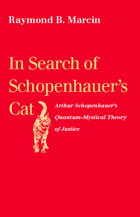
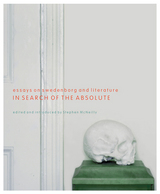
• H. J. Jackson, “‘Swedenborg’s Meaning Is the Truth’: Coleridge, Tulk, and Swedenborg”
• Anders Hallengren, “Swedenborgian Simile in Emersonian Edification”
• Richard Lines, “Swedenborgian Ideas in the Poetry of Elizabeth Barrett Browning and Robert Browning”
• Anders Hallengren, “A Hermeneutic Key to the title Leaves of Grass”
• Lars Bergquist, “Subjectivity and Truth: Strindberg and Swedenborg”
• Emilio R. Báez-Rivera, “Swedenborg and Borges: the Mystic of the North and the Mystic in puribus”
Also included are an introduction by Stephen McNeilly, a chronology of Swedenborg, biographies of the essay subjects, and an index.
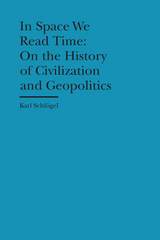
Here is both a model for thinking about history within physical space and a stimulating history of thought about space, as Schlögel reads historical periods and events within the context of their geographical location. Discussions range from the history of geography in France to what a town directory from 1930s Berlin can say about professional trades that have since disappeared. He takes a special interest in maps, which can serve many purposes—one poignant example being the German Jewish community’s 1938 atlas of emigration, which showed the few remaining possibilities for escape. Other topics include Thomas Jefferson’s map of the United States; the British survey of India; and the multiple cartographers with Woodrow Wilson at the Paris Peace Conference, where the aim was to redraw Europe’s boundaries on the basis of ethnicity. Moving deftly from the Austro-Hungarian Empire to 9/11 and from Vermeer’s paintings to the fall of the Berlin Wall, this intriguing book presents history from a completely new perspective.
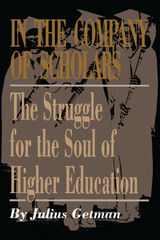
"I began this book to articulate my sense of disappointment and alienation from the status I had fought so hard to achieve." A remarkable admission from an alumnus of Harvard Law School who has held tenured professorships in the law schools of Yale and Stanford and has taught in the law schools of Harvard and Chicago.
In this personal reflection on the status of higher education, Julius Getman probes the tensions between status and meaning, elitism and egalitarianism, that challenge the academy and academics today. He shows how higher education creates a shared intellectual community among people of varied races and classes—while simultaneously dividing people on the basis of education and status.
In the course of his explorations, Getman touches on many of the most current issues in higher education today, including the conflict between teaching and research, challenges to academic freedom, the struggle over multiculturalism, and the impact of minority and feminist activism. Getman presents these issues through relevant, often humorous anecdotes, using his own and others' experiences in coping with the constantly changing academic landscape.
Written from a liberal perspective, the book offers another side of the story told in such works as Allan Bloom's The Closing of the American Mind and Roger Kimball's Tenured Radicals.
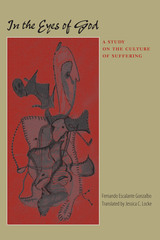
"Every culture needs to appropriate the universal truth of human suffering," says Fernando Escalante, ". . . to give its own meaning to this suffering, so that human existence is bearable." Originally published in Spanish as La mirada de Dios: Estudios sobre la cultura del sufrimiento, this book is a remarkable study of the evolution of the culture of suffering and the different elements that constitute it, beginning with a reading of Rousseau and ending with the appearance of the Shoah in the Western consciousness—"The memory endures, and this constitutes a fundamental transition for the Western conscience: we have witnessed."
Drawing on writings from the Greeks to Cervantes, Voltaire to Nietzsche, and Freud to William James, Escalante combines his considerable knowledge of politics and political theory with a vast array of literary examples to arrive at an intellectual understanding of the history and meaning of suffering. His investigation encompasses the rise of popular politics, the role of messianism in modern nationalism, and the contemporary implications of the Shoah.
This book will appeal to a wide audience: students of political theory, humanism, and philosophy, as well as the general reader interested in a glimpse into the mind of a highly original Latin American thinker.
READERS
Browse our collection.
PUBLISHERS
See BiblioVault's publisher services.
STUDENT SERVICES
Files for college accessibility offices.
UChicago Accessibility Resources
home | accessibility | search | about | contact us
BiblioVault ® 2001 - 2025
The University of Chicago Press


